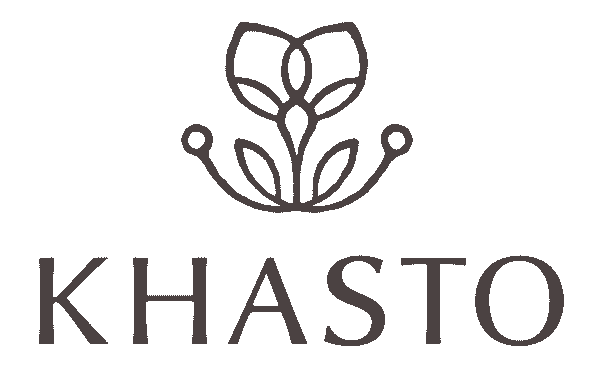What is GOTS and OCS cotton?

What is GOTS and OCS cotton?
Clothing labels, also at Khasto, sometimes contain abbreviations of quality marks, such as OCS or GOTS. But what does that mean? Time for a short explanation.
Due to its enormous size, the textile industry has a major impact on the economy and the environment. How farmers treat the soil, how companies treat their staff. Who takes responsibility for that? That is where certificates play an important and growing role. When you buy a piece of clothing as a consumer, all links in the chain that preceded that purchase have been checked against the rules of the certificate attached to the piece of clothing.
One certificate is stronger than the other. For example, Khasto works with GOTS and with OCS 100. OCS 100 guarantees that the cotton consists of 100% natural fibers (and therefore not synthetic). There is a ban on artificial fertilizers and genetically modified seeds during cultivation. Farmers must also have a water management plan to prevent waste and pollution. That makes sense because it has a systemic impact. But that still offers no guarantees for working conditions, for example. That's where GOTS comes into the picture. GOTS offers a guarantee of organic cultivation, the use of non-harmful chemicals and healthy working conditions. A heavier, stronger certificate.
It was not easy for Khasto to become certified for GOTS and OCS100. That took years. After all, we want to represent as many different techniques in textile processing as possible in the store and online. Often we work with a single individual in a village or town, who has mastered a certain technique, something very specific that few others can do. That versatility is a treasure of India, also called the 'cottage industry': local, small-scale craftsmen.
To achieve the goal of certified work, you will have to work with larger producers who are able to meet the many requirements of certified production. But then you avoid the smaller, artisanal producers who derive their identity, sense of pride and income from the work from our assignments. You will also not find the specific skills of certain crafts in the larger factories. We want to support those small economies and see value in preserving these rare crafts. After many decades of residence in India, we can fairly well see whether the working conditions are good in a workplace because there is frequent local contact. A certificate is proof of good conduct, but not the only road that leads to Rome.
Khasto has therefore opted for a hybrid form: for the products that we have produced in larger numbers, such as the 'cotton cashmere' collection or the annually changing block print collection, we work with GOTS and OCS 100 certificates. All links in the chain are certified. In some cases we also pay for that certification. For smaller-scale purchases, such as the kantha rugs, the annual indigo products, some accessories, certain embroidery, in short: small-scale specialist work, we do not work with certificates and we ensure that we know who we are doing business with and what is happening in the workshop. happens. In this way we believe we contribute to systemic change while preserving local small-scale crafts.
The products in the store that are OCS or GOTS certified have a white label, each with its own recognizable logo. All products that are not certified have a brown or beige label.
Khasto is registered with Global Textile Exchange (https://textileexchange.org/find-certified-company) for GOTS certification under license number: CB-GOTS-CUC-03- 1039528 and for OCS under license number: CB-CUC- 1039528.
